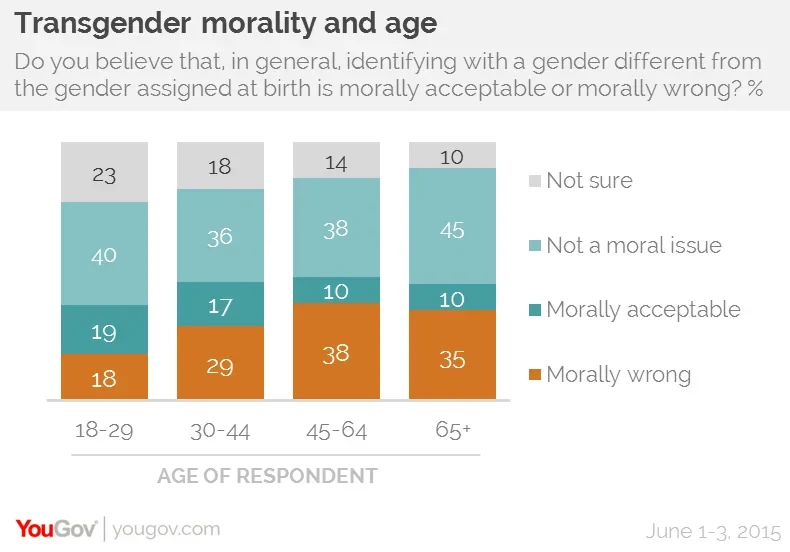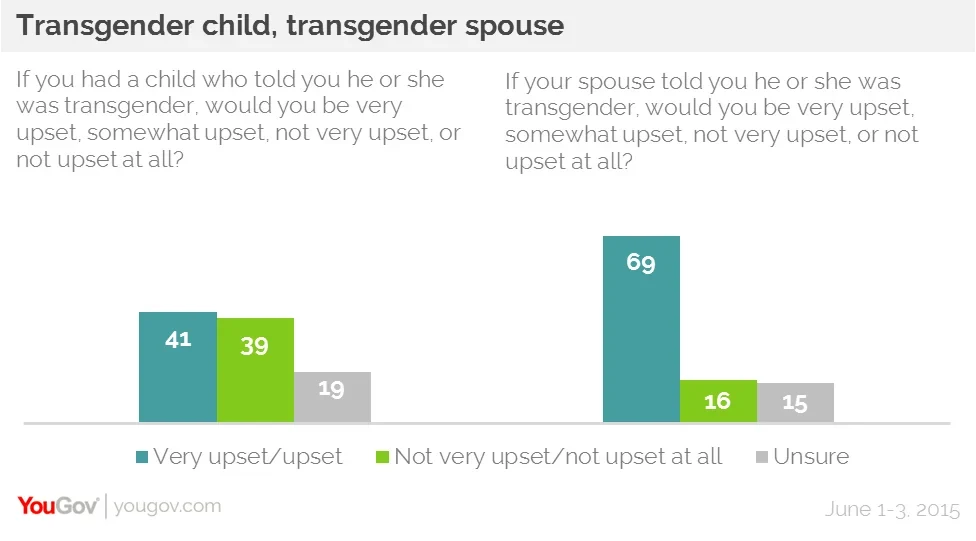Most Americans think being transgender is either acceptable or not a moral issue at all, but many people would be upset if their child told them they are transgender
Caitlyn Jenner, formerly known as Bruce Jenner, is gracing the cover of the latest issue of Vanity Fair. Jenner's journey from first announcing her transition to her public debut as Caitlyn has highlighted America's evolving attitudes towards transgender people, now that Caitlyn is one of the highest profile individuals to undergo the transition in the public eye.
YouGov's latest research shows that, on the whole, most Americans are fairly accepting of transgender people. Asked whether it is morally acceptable or morally wrong to identify with a different gender from your gender at birth, 53% of Americans either say that it is morally acceptable (14%) or is just not a moral issue (39%). Americans under the age of 30 (18%) are the least likely to believe it is immoral to be transgender, while people aged 45 to 64 (38%) are the most likely.

When it comes to religious groups, Protestants are far more likely than any other religious group, however, to say that it is morally wrong to be transgender. While 47% of American Protestants think that it is morally wrong, only 23% of American Catholics agree. Most American Catholics either think that it is not a moral issue (47%) or is morally acceptable (12%).
Despite a slim majority of Americans saying that they do not think it is immoral to be transgender, the public is more divided about how they would react if someone close to them told them they were transgender. 41% would be at 'upset' or 'very upset' if their child said they were transgender while 39% say that they would not be very upset or not upset at all. People are far more likely to say that they would be upset, however, if they were in the shoes of Kris Jenner. 69% would be unhappy if their spouse told them that they were transgender while only 16% say that they would not be very upset or not upset at all.










